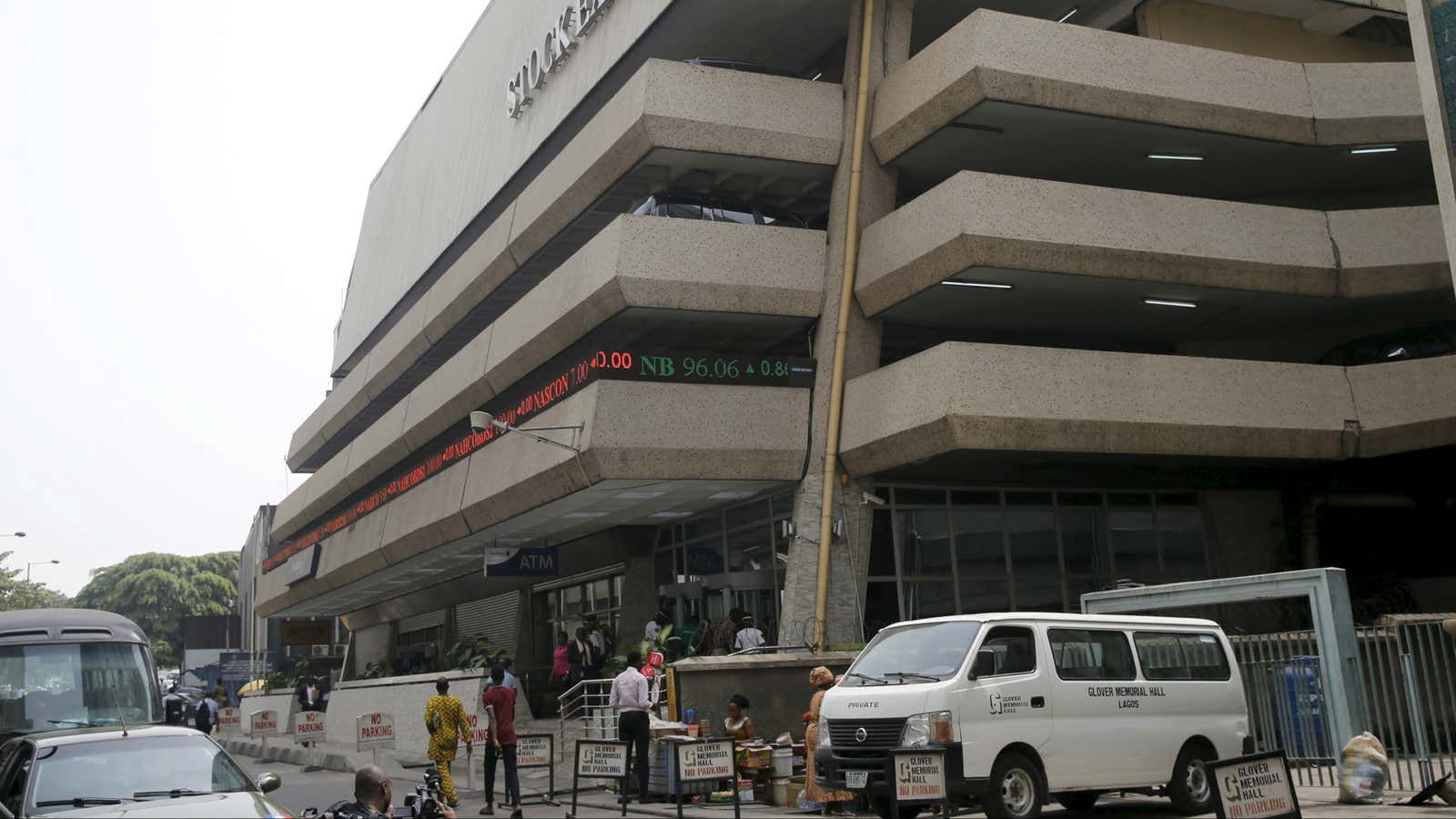Data from the Nigeria’s National Bureau of Statistics report on Capital Importation in 2015 (pdf) confirms a long suspected fact: the country’s struggles to cope with the fall in global oil prices and its currency slide have resulted in a loss of investor confidence.
The Capital Importation report tracks the total inflow of capital into the country under three main investment types: Foreign direct investment (FDI), portfolio investment and other investments, including currency deposits and loans. In 2015, total capital imported into Nigeria stood at $9.6 billion, the lowest recorded total since 2011. It represents a 53% drop from the $20.7 billion recorded in 2014.
Nigeria’s main challenges are tied to the 40% drop in oil prices since last January. Oil is Nigeria’s main source of foreign revenue, and the drop has been tackled with a number of controversial monetary policies including a refusal to devalue the currency. The uncertainty has left investors frayed, describing Nigeria as a ‘heightened risk situation’. In particular, the seeming inability of the Nigerian government and its central bank, to manage the deteriorating situation has resulted in declining investor confidence over the last 18 months during which capital importation has dropped by 77%.
A majority of the $9.6 billion imported into Nigeria’s economy came from only three countries. Netherlands, United Kingdom and the United States of America contributed 80% of total inflow. Mauritius, a tax haven and corporate outlet for African multinationals like MTN, was Nigeria’s biggest continental source of capital inflow with $553 million.
The report also highlighted the growing importance of Nigeria’s telecommunications industry. Telecoms, which contributed 9% of Nigeria’s GDP last year, recorded more capital inflow ($937 million) than any other sector for the first time ever. The drop in investor confidence in Africa’s largest economy is in line with the continent’s struggles in 2015. According to data from the United Nations Conference on Trade and Development, foreign direct investment in Africa fell by a third last year.
